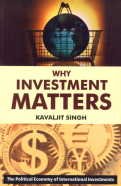madhyam books delhi (2 résultats)
CommentairesFiltres de recherche
Type d'article
- Tous les types de produits
- Livres (2)
- Magazines & Périodiques (Aucun autre résultat ne correspond à ces critères)
- Bandes dessinées (Aucun autre résultat ne correspond à ces critères)
- Partitions de musique (Aucun autre résultat ne correspond à ces critères)
- Art, Affiches et Gravures (Aucun autre résultat ne correspond à ces critères)
- Photographies (Aucun autre résultat ne correspond à ces critères)
- Cartes (Aucun autre résultat ne correspond à ces critères)
- Manuscrits & Papiers anciens (Aucun autre résultat ne correspond à ces critères)
Etat
- Tous
- Neuf (Aucun autre résultat ne correspond à ces critères)
- Ancien ou d'occasion (2)
Reliure
- Toutes
- Couverture rigide (Aucun autre résultat ne correspond à ces critères)
- Couverture souple (2)
Particularités
- Ed. originale (Aucun autre résultat ne correspond à ces critères)
- Signé (Aucun autre résultat ne correspond à ces critères)
- Jaquette (Aucun autre résultat ne correspond à ces critères)
- Avec images (Aucun autre résultat ne correspond à ces critères)
- Sans impressions à la demande (2)
Livraison gratuite
- Livraison gratuite à destination de France (Aucun autre résultat ne correspond à ces critères)
Evaluation du vendeur
-
Questioning Globalization
Edité par Madhyam Books, Delhi, 2005
ISBN 10 : 8186816178 ISBN 13 : 9788186816172
Vendeur : Vedams eBooks (P) Ltd, New Delhi, Inde
Paperback. Etat : As New. New. Contents Acronyms. Data notes. Acknowledgements and dedication. Introduction. 1. Does financial globalization stimulate investment and growth. 2. Global Rules on Investment rules for whom. 3. Does globalization promote democracy and human rights. 4. International aid IFIs and good governance whose governance matters. 5. Does globalization spell the end of nation state. Bibliography. Index. Globalization has become the cliche of our times. The neo liberal virus has struck almost everybody including within the ranks of the left. The proponents of neo liberal globalization claim that it produces accelerated efficient development along with a deepening of democracy and human rights. However reality shows the opposite and any rigorous examination of such arguments reveals their shallowness and inconsistency. This book underscores the point that current economic disasters are not the price we have to pay for a transition towards the promised paradise but on the contrary are bound to get worse as long as neo liberal economic policies are pursued. With the help of case studies statistical data and cogent analysis the book debunks several myths associated with globalization processes. 192 pp.
-
Why Investment Matters : The Political Economy of International Investments
Edité par Madhyam Books, Delhi, 2007
ISBN 10 : 8186816194 ISBN 13 : 9788186816196
Vendeur : Vedams eBooks (P) Ltd, New Delhi, Inde
Paperback. Etat : As New. New. Contents Acronyms. Data notes. Acknowledgements. Foreword. 1. Defining international investments. 2. Recent trends in international investment flows. 3. Are international investment flows beneficial. 4. The regulatory framework. 5. The governance of international investments a historical perspective. 6. International investment frameworks a fragmented landscape. 7. Regulating investments voluntary or mandatory approaches. 8. Strategizing campaigns. 9. Resources. Glossary. Index. Investment matters. The millions of dollars that are moved around the world every minute of day profoundly affect who gets to eat and who doesn't who has a job and who doesn't and who accumulates wealth and at whose expense. Influencing investment decisions requires an understanding of how investment works. Kavaljit Singh explains the central role of Transnational Corporations (TNCs) and other key players in determining investment patterns. He debunks some of the myths surrounding investment flows and he suggests ways in which investment can be brought back under the democratic control of people and governments. Kavaljit Singh maps out investment flows trends and regulatory frameworks and shows where citizens can work and are working to reclaim investment for the public good. 176 pp.



